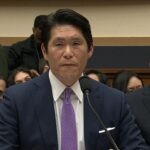
Published October 25, 2022
The following essay accompanied Patrick T. Brown’s introduction to The Public Discourse as a contributing editor.
We live in a sound-bite age. Rhetoric often replaces reason. Considered judgments often yield to the pressure for quick reactions. Serious moral reasoning often gets short shrift in our public discussions. Public Discourse seeks to fill this vacuum.
Public Discourse founding editor (and my current boss) Ryan T. Anderson introduced this journal with those words fourteen years ago—when Twitter had barely hatched and TikTok was the sound a clock made. If reasoned public discussion felt cut short in the age of the sound-bite, it has been made seemingly impossible in the era of the meme.
There are vanishingly few places, on right or left, where a range of scholars and academics can seriously engage with a topic over the course of a couple thousand words. Instead of narrowly pursuing a specific audience or optimizing for hateclick outrage, Public Discourse hosts thinking on a wide range of issues, openly questioning the dogmas that pass for conventional wisdom and thoughtfully trying to persuade.
That’s part of why I am excited to join the Public Discourse team as a contributing editor and look forward to continuing the wide-ranging conversation that takes place here. Over the years, a broad array of writers have debated matters of prudential judgement on capital punishment, reparations, free trade, and constitutional interpretation that stretch far beyond my pay grade.
But one does not engage in open debate and dialogue just for its own sake, but for developing a deeper understanding of the truth and how to better communicate it. The values that Public Discourse holds as non-negotiable—respect for the dignity of the human person, the importance of marriage and the family, and a political order that pursues the common good in the context of a market economy—strike me as the correct footing for public policy debates. As I see it, Public Discourse’s overarching goal is to start from these bedrock principles to flesh out a political framework aimed at shoring up the institutions that are crucial to a life well lived.
The most fundamental institution, of course, is that of the family, and the communities of which it is part are also paramount. A healthy culture, nearly every Public Discourse reader would agree, needs strong families. Our society needs to be continually reminded of the self-sacrificial love at the heart of a strong marriage, the virtues that parents can model for their kids, the social dysfunction and disarray that occur when family becomes a collection of individuals that happen to share a roof, rather than an integral and interdependent unit.
As I see it, Public Discourse’s overarching goal is to start from these bedrock principles to flesh out a political framework aimed at shoring up the institutions that are crucial to a life well lived.
There are plenty on both sides of the political aisle that need to be reminded of the cultural importance of strong families. But there is a growing number on the right—and I count myself among them—who recognize the family as possessing an inherent economic logic as well, in addition to its essential culture-shaping role. Families are influenced by market forces, starting from the very fundamental decision whether to form a household or not.
The statistics are probably familiar: In 1970, the average age at first marriage was 23 for men and 21 for women. The next half century saw a social revolution; those numbers are now 30 and 28, respectively. Over that same period, the number of births per 1,000 women aged 15–44 dropped from 88 to 56. The United States had more total marriages in 1970 than it did in 2018, even while the nation’s population grew by over 60 percent, a sign of a grayer and more independent-minded nation.
There are multiple factors driving these trends, perhaps first and foremost an increasing opportunity cost of forgoing other options to marry and start a family. Marriage means forgoing other options, personally and professionally, and doesn’t have the same economic necessity it did in generations prior.
This new reality should push social conservatives to rethink some traditional limited-government skepticism about things like tax credits for families, and addressing some of the flaws in the market for child care, health care, and housing that make those goods unaffordable for families.
Similarly, having children was once an economic investment, guaranteeing that there would be more farmhands to help with the harvest or caring bodies to tend to you in your dotage. Now, there’s an app (and a social safety net) for that, and parenthood is increasingly seen as one form of consumption among many. And it can come at a high cost; having a child can mean giving up on dreams of graduate school or a corner-office promotion. Parents bear the cost of childbearing individually, even though many benefits redound to society in the form of future workers and taxpayers.
This new reality should push social conservatives to rethink some traditional limited-government skepticism about things like tax credits for families, and addressing some of the flaws in the market for child care, health care, and housing that make those goods unaffordable for families. Some of our friends on the right say that America does not need a pro-family agenda! that getting the state out of the way and winning the culture war will be enough to resurrect birth and marriage rates.
It is, of course, laudable to work for cultural transformation and hope for a new, doubtless very different, Great Awakening. And even the best-crafted public policy alone cannot change people’s fertility desires or create a more pro-natalist society. But better policies can ease some of the tradeoffs facing parents, or would-be parents, allowing more of them to take the plunge. Seeking to address the drivers of delayed marriage and lower fertility without a proactive economic policy agenda is to place a burden on cultural exhortation that experience shows it cannot bear.
This requires some amount of getting our hands dirty in the nitty-gritty of politics and policy design. In the abortion debate, for instance, insisting on our desire to be fully pro-life and pro-women will ring hollow if it is not matched with concrete plans to expand the resources available to women facing unplanned pregnancies, via both civil society and traditional safety-net programs. Social theory can only take us so far when debating negative marginal tax rates and work disincentives in safety-net programs, and avoiding some of the well-intentioned but corrosive generosity of previous attempts to improve the human condition through federal legislative efforts. Whether it’s child tax credits or housing policy, efforts to orient public policy in a more pro-family direction cannot rely on good intentions alone to get the details right.
Seeking to address the drivers of delayed marriage and lower fertility without a proactive economic policy agenda is to place a burden on cultural exhortation that experience shows it cannot bear.
A fully pro-family politics requires a political coalition that does not, at this moment, exist. Advancing authentically pro-family policies may entail finding common ground with well-meaning interlocutors on the other side. Whether we live in a fully post-Christian nation or one merely approaching that status, exclusively relying on a culture-war-heavy approach will come up short. Seeking to promote healthy communities for families to be a part of should also encourage us to place authentic pluralism at the heart of a pro-family agenda.
Part of this stance is probably informed by my biography—the Pacific Northwest may be God’s country when it comes to physical beauty, but its culture is decidedly post-God. Growing up there, in a religiously observant, homeschooling family of six kids amid one of the lowest percentages of church attendance in the country, engrains a certain healthy distance between oneself and the predominant mainstream. Unlike many conservatives, maybe, I don’t think I’ve ever had the sense that the America I once knew was being taken away. Being on the losing end of political and cultural battles in 2000s-era Seattle was reminder enough for a lifetime that standing athwart History, yelling stop is no guarantee that anyone will listen.
The challenges that face families—the cost of parenthood, the effects of social media on teens, a school system that is not responsive to parents’ wishes—are too important to give up on pluralism and finding common ground, even while standing firm on principle.
But growing up a conservative in an aggressively blue state also engenders a great appreciation of the American tradition of pluralism and religious freedom, the right to be thought of as weird and to have forbearance toward other people’s weirdness. The unending legal challenges against florists and website developers, seeking to compel them to affirm the doctrines of the new religion, are a sign that we are losing that tolerance; and, of course, many on the right wish they could use the power of the law to compel their cultural adversaries into submission as well. But the challenges that face families—the cost of parenthood, the effects of social media on teens, a school system that is not responsive to parents’ wishes—are too important to give up on pluralism and finding common ground, even while standing firm on principle.
Multidimensional problems require complex answers. The forces threatening families are economic, but also cultural and spiritual. Public Discourse is a place where we can speak of all of those dimensions openly, and frankly assess the tradeoffs associated with various plans aimed at ameliorating some of those burdens. Addressing the nuts and bolts of policymaking in the light of first principles harkens back to another quote from Anderson’s founding essay:
Whatever the pressing question of the day may be—debates surrounding economic policy, biotechnology, international relations, marriage and the family, constitutional law and religious liberty—they all entail ethical positions. Any judgment, for example, about which taxation policies work best assumes an answer to the question: best for what end? Does this end contribute to human well-being? Do the means detract from our well-being?
These questions remain as essential as they were in 2008, when Public Discourse was founded, and the battles that have been won and lost since then are a reminder that the terrain we fight on is not fixed. But this insight—that assessing the ends and means of state action means addressing the specific, technical questions of governance without losing sight of those key, underlying principles—remains central. It is an important part of what I hope to contribute to Public Discourse, and look forward to seeing applied as we develop the future of social conservativism in a post-Obergefell, post-Bostock, and yes—blessedly—post-Dobbs America.
Patrick T. Brown is a fellow at the Ethics and Public Policy Center, where his work with the Life and Family Initiative focuses on developing a robust pro-family economic agenda and supporting families as the cornerstone of a healthy and flourishing society.
Patrick T. Brown is a fellow at the Ethics and Public Policy Center, where his work with the Life and Family Initiative focuses on developing a robust pro-family economic agenda and supporting families as the cornerstone of a healthy and flourishing society.












